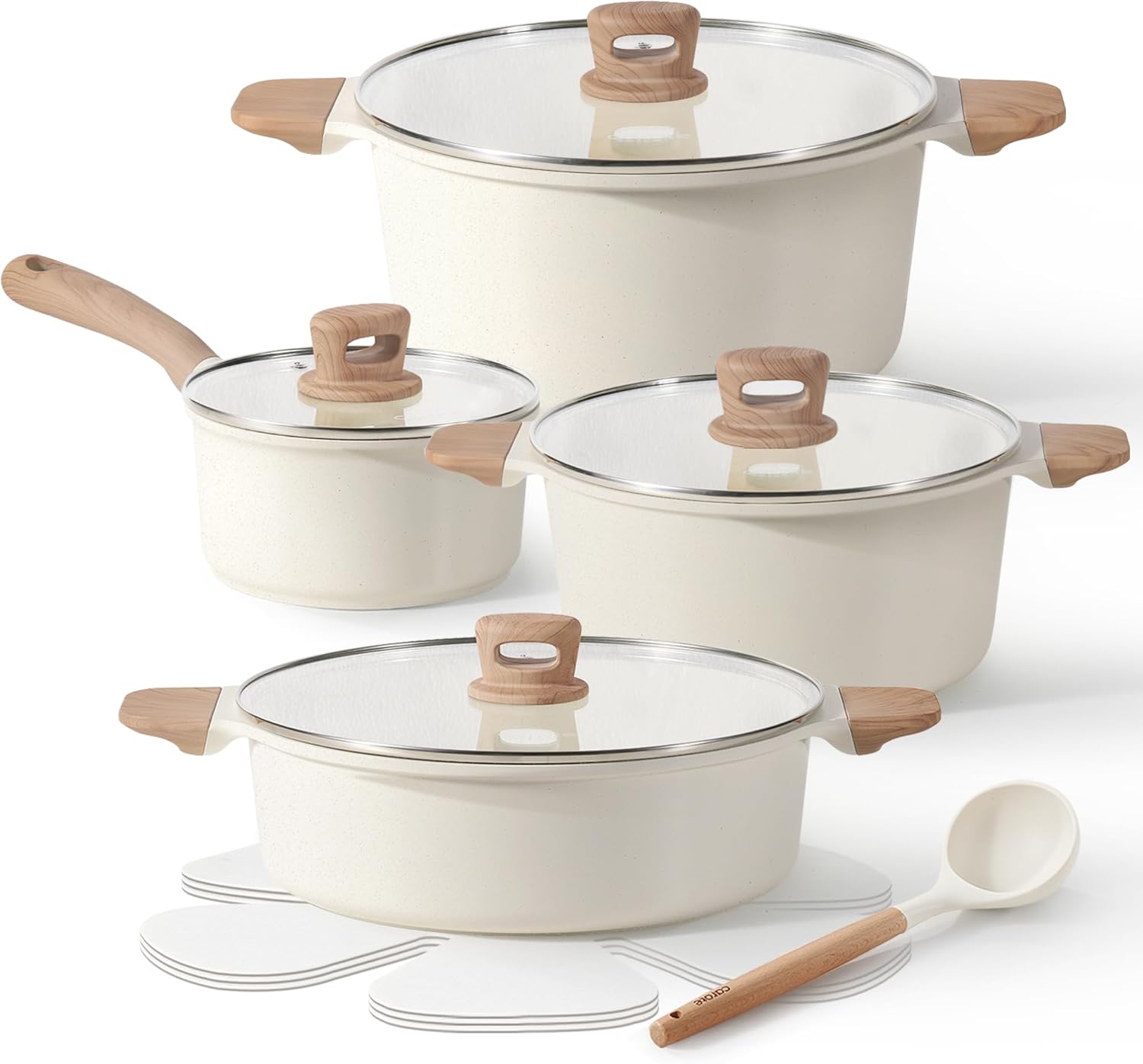





Price: $79.99 - $59.99
(as of Apr 07, 2025 14:45:54 UTC - Details)
What’s the Best Cookware Material? A Comprehensive Guide
Introduction
When it comes to cooking, the material of your cookware can make a huge difference in both the taste of your food and the ease of preparing it. If you’ve ever wondered, “What’s the best cookware material?” you’re not alone. Many home chefs and cooking enthusiasts grapple with this question. Understanding the various cookware materials available—like stainless steel, cast iron, non-stick, and copper—can help you make an informed decision for your kitchen. In this article, we’ll explore the best cookware materials, their pros and cons, and what to consider when choosing the right one for your culinary adventures.
Understanding Cookware Materials
1. Stainless Steel Cookware: The All-Rounder
Stainless steel is often hailed as one of the best cookware materials due to its durability and resistance to rust and corrosion. It’s non-reactive, which means it won’t alter the taste of your food. If you’re cooking with acidic ingredients, stainless steel is a safe choice.
Pros of Stainless Steel Cookware:
- Durable and long-lasting
- Easy to clean and maintain
- Non-reactive with food
Cons of Stainless Steel Cookware:
- Poor heat conductivity unless layered with other metals
- Can be expensive compared to other materials
2. Cast Iron Cookware: The Heat Retainer
Cast iron is a classic choice for many chefs, particularly for those who enjoy slow cooking and baking. Its ability to retain heat makes it ideal for frying and searing. Plus, cast iron cookware can be used on the stovetop and in the oven, making it incredibly versatile.
Pros of Cast Iron Cookware:
- Excellent heat retention
- Naturally non-stick when seasoned properly
- Adds iron to your food, which can be beneficial
Cons of Cast Iron Cookware:
- Heavy and may require special care
- Prone to rust if not maintained properly
3. Non-Stick Cookware: The Easy Clean Option
If you’re looking for convenience in the kitchen, non-stick cookware might be your best bet. This material allows food to slide off easily, reducing the amount of oil needed for cooking. However, it’s essential to choose high-quality non-stick cookware to avoid harmful chemicals.
Pros of Non-Stick Cookware:
- Easy to clean
- Requires less oil for cooking
- Lightweight and easy to handle
Cons of Non-Stick Cookware:
- Can scratch easily if not cared for
- Limited lifespan compared to other materials
4. Copper Cookware: The Chef’s Choice
Copper cookware is favored by many professional chefs for its superior heat conductivity. This material heats up quickly and cools down just as fast, allowing for precise temperature control.
Pros of Copper Cookware:
- Excellent heat conductivity
- Quick temperature changes
- Attractive appearance for serving
Cons of Copper Cookware:
- Requires regular polishing to maintain appearance
- Can be expensive
- Reacts with acidic foods unless lined
Choosing the Right Cookware Material
5. Cooking Style and Needs
Your cooking style greatly influences the best cookware material for you. If you often prepare delicate sauces or need precise temperature control, copper might be your best option. For everyday cooking, stainless steel is a reliable choice. Consider what you cook most often to guide your decision.
6. Maintenance and Care
Different cookware materials require varying levels of care. If you prefer low-maintenance options, non-stick or stainless steel may suit you best. However, if you’re willing to put in the effort, cast iron and copper can last a lifetime with proper care.
7. Budget Considerations
Your budget will also play a significant role in your cookware material choice. Stainless steel and non-stick options are generally more affordable, while copper cookware can be a splurge. Assess your budget and prioritize quality within your price range.
Conclusion
So, what’s the best cookware material? Ultimately, it depends on your cooking habits, maintenance preferences, and budget. Each material—whether it’s stainless steel, cast iron, non-stick, or copper—has its unique benefits and drawbacks. By understanding these differences, you can make an informed choice that enhances your cooking experience. Remember, the right cookware can elevate your culinary skills and help you create delicious meals with ease. Choose wisely, and happy cooking!
Cook Healthier:Our cookware sets are free of PFOA, PFOS, and the other harmful chemicals. You can enjoy your cooking on carote cookware safely & easily.
Time-saving Cleaning: Enjoy effortless cooking and cleaning with exceptional performance and ultra-nonstick coating.
Even Heating: Even&rapid heat delivery without hot spots so food cooks the same everywhere on the pan while boiling, simmering, reheating.
Lasting performance: The reinforced die-cast aluminum construction of this kitchen pots and pans set make it resistant to wear and tear, allowing it to withstand frequent usage without compromising its performance.
Service & Guarantee: Each CAROTE cookware passes strict multi inspection process.In case you received defect items caused by delivery, please don't hesitate to reach out, thanks. You will be guaranteed to get 100% refund or a new replacement.
